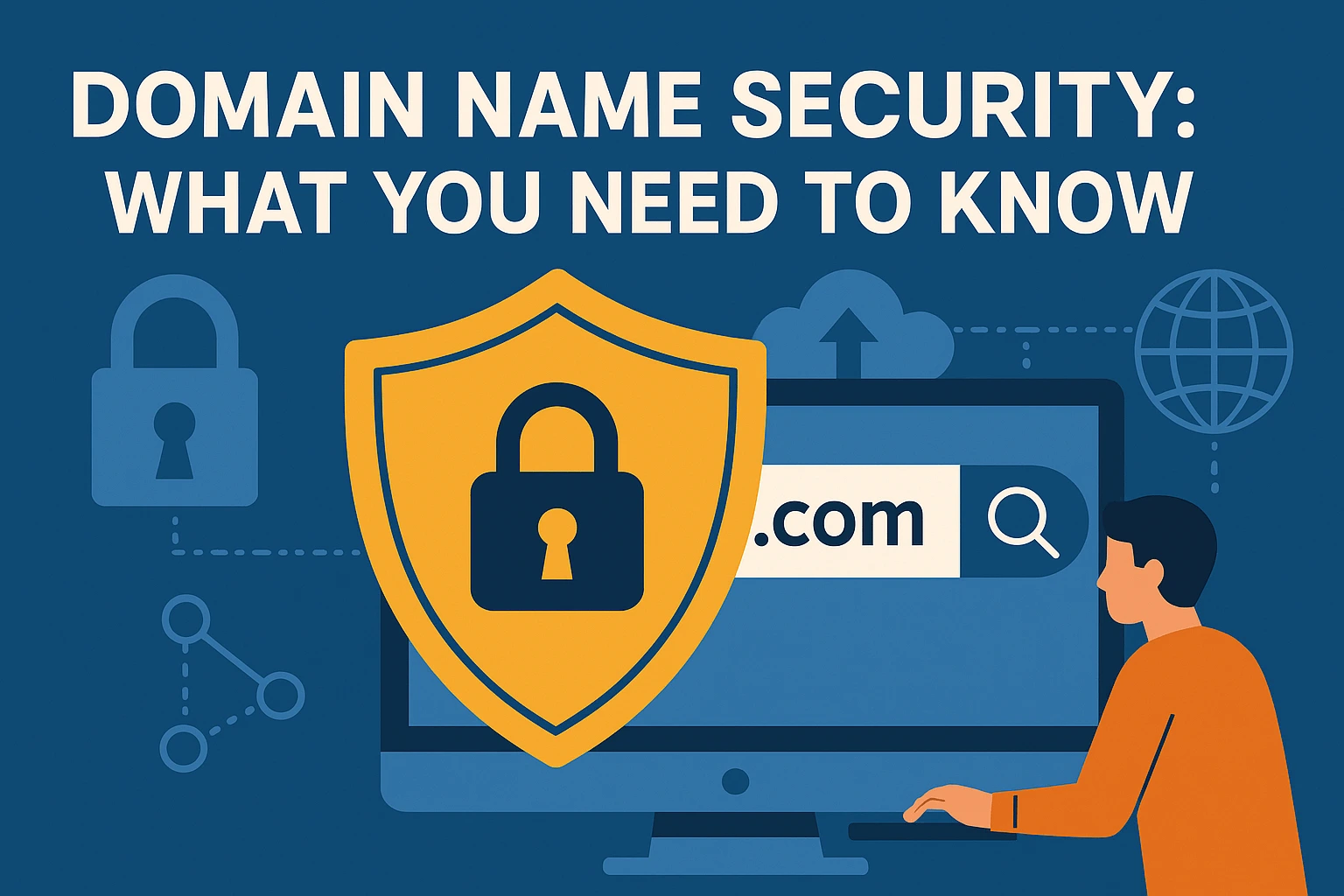Domain Name Security: What You Need to Know

Your domain name is not just an address — it's a vital part of your brand identity, SEO presence, and business continuity. Securing it is critical. Here's what you need to know in 2025 to protect your .fr domain (or any other TLD) from digital threats, fraud, or accidental loss.
1. Enable Registrar Lock
Registrar lock prevents unauthorized domain transfers to another registrar. When this setting is enabled, even if someone gains access to your credentials, they can't hijack your domain without additional validation.
Check monthly that your lock is still active via your domain dashboard.
2. Use Strong and Unique Credentials
Weak passwords remain one of the most common attack vectors. Use a password manager to create long, random passwords and activate two-factor authentication (2FA) for both your registrar and DNS control panel.
Bonus tip: Avoid reusing credentials across services like Gmail, hosting, and registrar accounts.
3. Monitor Domain Status
Configure automatic alerts for any changes to your DNS records, name servers, WHOIS data, or renewal status. Many domain monitoring tools offer instant notifications when unauthorized changes occur.
🛠️ Use tools like AFNIC ZoneCheck, DNSTwist, or SecurityTrails to detect DNS anomalies.
4. Keep Your Contact Info Up-to-Date
Your domain registrar uses your contact email to send renewal notices and important alerts. If that email no longer works, you risk missing critical warnings — or losing your domain due to missed payments or validation errors.
Update contact info every 6 months — even if there’s no obvious change.
5. Activate DNSSEC
DNSSEC (Domain Name System Security Extensions) protects your visitors from DNS spoofing and cache poisoning attacks by adding a digital signature to DNS responses.
.fr domains fully support DNSSEC — enable it in your registrar settings or ask their support team to assist.
6. Use a Reputable Registrar
Don’t just go for the cheapest domain provider. A good registrar will have:
- AFNIC accreditation
- 24/7 support and real-time security notifications
- Clear terms around domain renewal and recovery
- Support for features like DNSSEC, 2FA, and WHOIS privacy
Well-known registrars in France include OVHcloud, Gandi, and IONOS by 1&1.
7. Watch Out for Phishing and Social Engineering
Many domain thefts don’t happen via hacking, but by tricking people. Phishing emails may look like they come from your registrar asking you to "verify" or "renew" your domain.
Always verify the sender’s domain and avoid clicking on links in unexpected emails.
8. Set Auto-Renewal & Check Expiry
One of the most common — and costly — mistakes is letting a domain expire accidentally. Set your domain to auto-renew, and ensure your payment methods are always up to date.
⏰ Mark your renewal date on your calendar and set a yearly reminder.
9. Use WHOIS Privacy (if Available)
Although the GDPR protects most private data in EU domains, some registrars still allow optional WHOIS masking. This reduces spam and makes it harder for attackers to discover your contact details.
WHOIS privacy also helps prevent targeted social engineering attacks.
10. Establish a Domain Recovery Plan
What happens if your domain is compromised or hijacked? Plan ahead:
- Know your registrar’s recovery process
- Have legal proof of ownership on hand
- Document who internally is responsible for domain management
Prevention is best — but recovery planning is a must.
Conclusion
Your domain is more than a name — it's your brand’s gateway to the digital world. Protecting it should be as high a priority as securing your website or cloud infrastructure.
In 2025, with growing threats and increasingly sophisticated phishing schemes, these best practices are not optional — they’re essential.
Need help securing your .fr domain? Contact your registrar or visit AFNIC’s official site for trusted resources and guidelines.
✅ Verrouillez votre domaine.
🔐 Activez DNSSEC et l’authentification à deux facteurs.
👥 Formez votre équipe contre l’ingénierie sociale.
💳 Assurez l’auto-renouvellement.
🧩 Dormez tranquille.